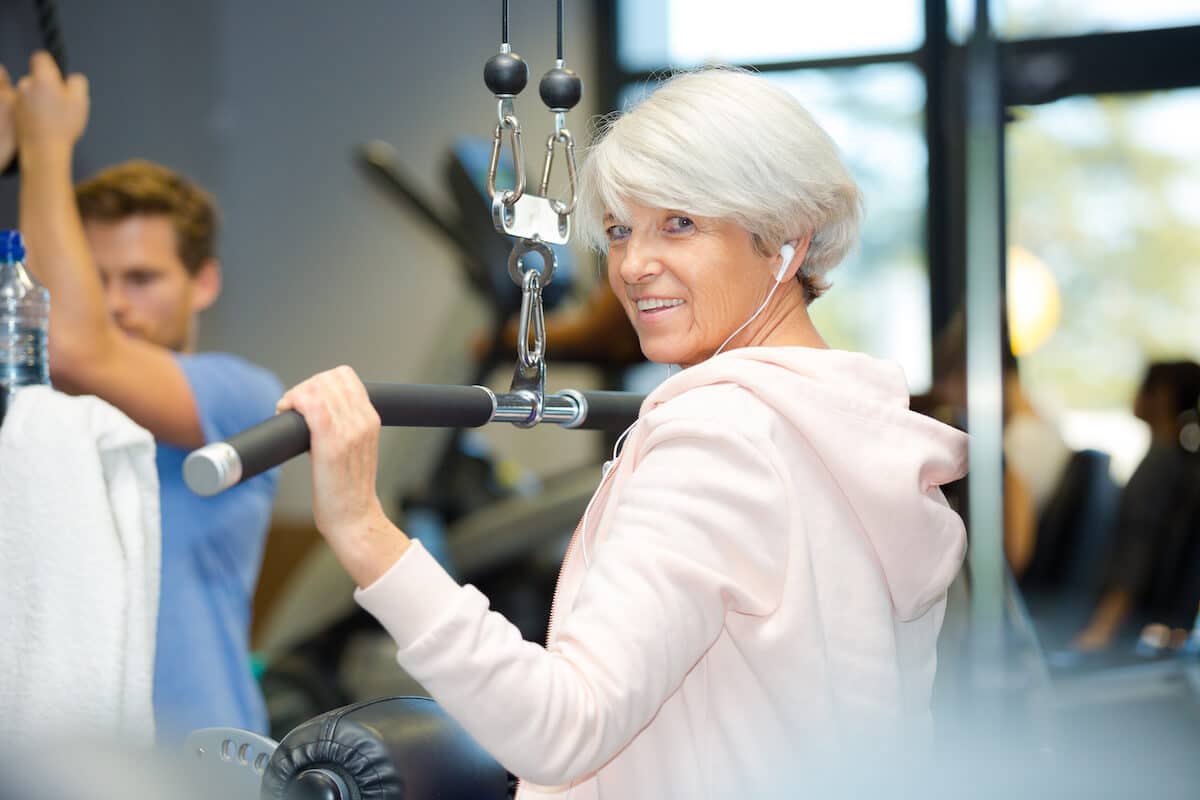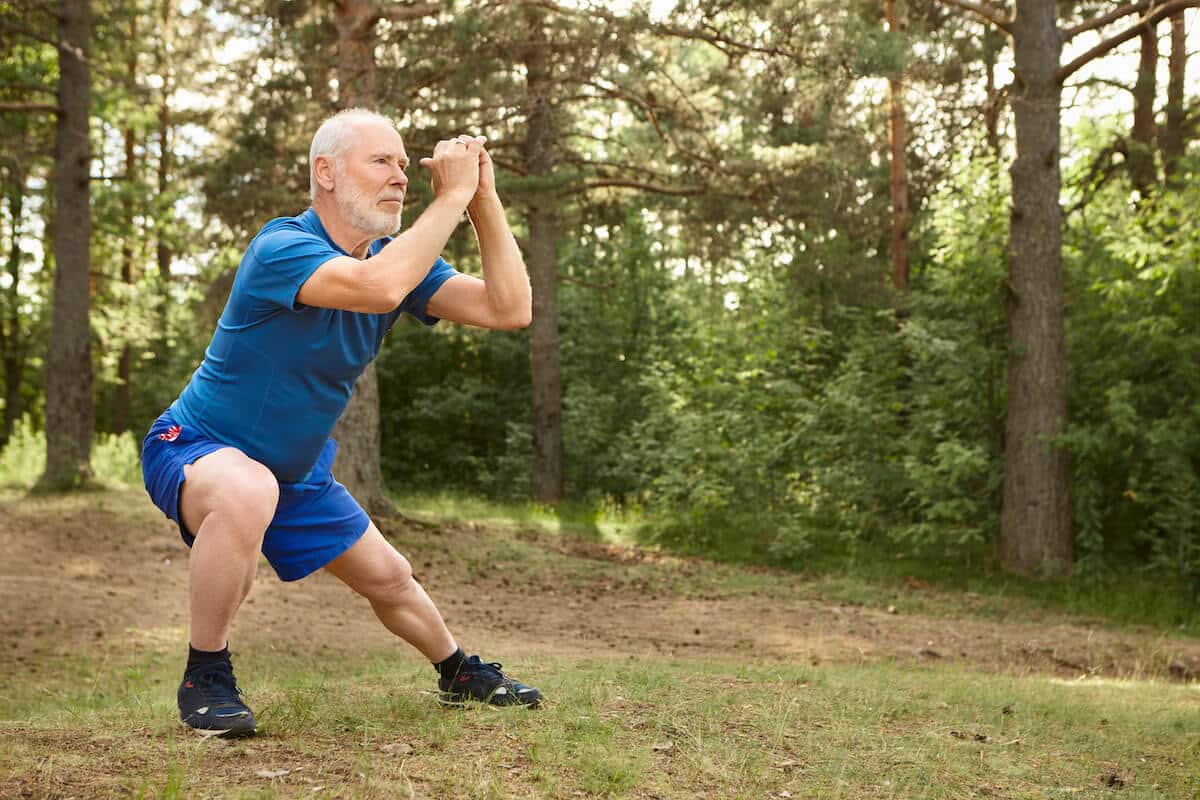
08 Nov Essential Supplements for Building Muscle After 60
There’s so much to appreciate about getting older — wisdom gained from life experience, long-term relationships formed over years, greater financial resources, and simply caring less what others think of you. To enjoy all those advantages, you need to take extra care of your health.
Maintaining muscle mass is one health challenge many older adults face. This is critical if you want to continue to live your life to the fullest. Addressing it requires ongoing effort, including resistance exercise, a healthy diet, and supplements for building muscle after 60.
Why You Need Muscle
Strong and healthy muscle has many health benefits. It’s critical for any kind of physical activity, from carrying your groceries up a flight of stairs to picking up a grandchild who’s fallen over. Skeletal muscle also helps you keep your balance, so you’re less likely to fall over yourself.
As you age, much of your physical quality of life depends on your ability to maintain healthy muscle mass.
How Muscle Growth Changes for Seniors
You lose 3-8% of your muscle mass per decade after 30 and even more after 60. Plus, having cardiovascular disease or diabetes exacerbates this trend.
There are many different theories why it gets harder to maintain and, especially, to gain muscle as you get older. But essentially, the anabolic — or muscle-building — process doesn’t work as efficiently as it used to.
Loss of muscle mass, strength, and function, usually in older men and women, is known as sarcopenia.
Luckily there are ways to counteract this tendency in older people and maintain your anabolic capacity.
What Your Body Needs To Build Muscle Mass

Your body usually needs two elements to build and maintain muscle mass: resistance training and amino acids.
Strength Training Workout Routine
Including some cardio in your training program is important, but resistance training builds both muscle mass and muscle strength. Luckily you don’t have to do bodybuilding-level weight training, although if you enjoy lifting weights, you can do some reps with dumbbells or similar equipment. Alternatively, do strength-training exercises using your body weight, for example, squats, lunges, push-ups, or pull-ups, or work with resistance bands.
As a bonus, strength training may even help you live longer.
Getting Enough Amino Acids
Protein is one of the macronutrients your body needs to function properly, along with carbs and healthy fats. And the building blocks of protein are amino acids.
Your body can make some amino acids, but there are some it can’t produce — these are called essential amino acids.
We need to get essential amino acids from our protein intake, whether from whole foods or protein supplements. When we consume protein, our body breaks it down into amino acids, which are then recombined into different kinds of proteins, including muscle protein. This process is known as protein synthesis.
Your body is constantly using up protein for many different functions. If there aren’t enough freely available amino acids in your system — because your protein intake isn’t high enough — it starts to access the protein stored in your muscles. If that continues, you’ll start losing muscle mass.
The branched-chain amino acids (BCAAs) — leucine, isoleucine, and valine — are especially critical for building muscle, reducing muscle breakdown, and helping your muscles recover after a workout.
BCAAs also reduce the effects of everyday stresses and boost your testosterone levels, which supports muscle-building.
Most moderately active adults need around 0.8 grams of protein per kilogram of body weight. However, as you age, you need closer to 1.5 grams per kilogram to maintain the same level of muscle mass. This amount of protein can be difficult to get from your food, which is why many older adults rely on dietary supplements to fill the gap.
Let’s look at some of the best supplements for building muscle after 60.
The Best Supplements for Building Muscle After 60

Certain supplements become especially important for your muscles as you mature. They support your body to keep building and maintaining that all-important lean muscle mass. We’ll begin with what is possibly the most crucial supplement for building muscle after 60.
Protein Powder
As we’ve seen, older adults need nearly double the amount of protein that a middle-aged person would. That’s a lot of chicken, beef, or legumes to get through every day. Protein supplements make it easy to get enough protein without all that chewing – and by default, they contain those essential amino acids you need to build and maintain muscle.
Some of the most popular protein powders are whey protein (usually either in concentrate or isolate form) and pea protein, which is suitable for those on a plant-based diet.
Beta-Hydroxy-Beta-Methylbutyrate (HMB) is a supplement often sold separately. It comes from leucine and helps reduce muscle protein breakdown, preserving your existing muscle.
You can add protein powder to meals or protein shakes or smoothies. There’s some controversy about whether it’s better to drink your protein shake pre-workout or post-workout, but the latest research indicates that the window of time is much larger than we thought. Evidence suggests that it’s particularly beneficial for older men and women to distribute their protein intake throughout the day.
These supporting supplements for building muscle help in different ways:
- Creatine: Creatine supplementation boosts the energy available for muscles to use. This supports the growth and maintenance of muscle mass and strength, helping your body make the most of the effort you put in there.
- Calcium and Vitamin D: Calcium supplements help to keep your bones strong, so you can keep doing the resistance training you need. Calcium is especially effective when it’s combined with vitamin D supplementation. Vitamin D helps your body absorb calcium, boosts your immune system, strengthens your bones, and reduces inflammation.
- Omega-3s: Omega-3s also help to reduce inflammation and protect your joints while you exercise, helping you to move easily and without pain. They decrease your risk of cardiovascular disease, keep your brain healthy, and reduce depression and anxiety. You can get these critical fatty acids from fish oil supplements or, if you’re eating a plant-based diet, from algae supplements.
Get the Best Quality Supplements You Can Afford

When you’re buying supplements, make sure you do your research. Check the ingredients list, and make sure the product is highly bioavailable and has been independently tested.
Ingredient Optimized makes some of the highest quality supplements for building muscle after 60, including ioWhey Protein and ioPea Protein.
In fact, ioWhey takes protein powder to the next level. An independent study found that ioWhey improves lean body mass and strength without the need for resistance exercise.
You can find Ingredient Optimized protein powder in these partner products:
Build Muscle After 60 for Ongoing Health and Wellbeing
Without intervention, you naturally lose muscle mass and strength as you age. This makes physical activities like carrying things and balancing as you walk that much more difficult. However, with the right support, you can keep your muscles in shape long into your old age.
To achieve that, you need to get enough resistance exercise and protein. Support nutrients, like creatine, calcium, vitamin D, and omega-3s, help keep your bones and joints healthy and your energy up. Look for high-quality supplements that include Ingredient Optimized ingredients, and you’ll be hiking and playing with your grandkids far longer than you ever thought possible.


